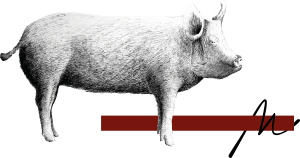If you’re worried about having a panic attack after drinking, the best strategy is to abstain. If you have social anxiety or a social phobia, therapy may work best to reduce your levels of anxiety (combined with a medication such as sertraline, or Zoloft). Alcohol has an effect on brain chemistry – it can induce panic because of its effects on GABA, a chemical in the brain that normally has a relaxing effect.
- Cutting out alcohol will help you cope better, and should reduce the likelihood of experiencing a panic attack, but it won’t stop them altogether.
- Their drinking leads to increasing problems in their life, and this then becomes a source of more anxiety.
- Additionally, alcohol affects neurotransmitter levels in the brain—the chemical messengers responsible for how we think, feel, and behave.
If you are sensitive to the effects of alcohol, these uncomfortable sensations can trigger a panic attack. As well as being an unhealthy coping mechanism, cases of alcohol-induced panic attacks prove that alcohol can actually be the cause of anxiety and panic rather than the cure. Hypersensitivity is when a person is so sensitive to changes in their body that they can’t help but notice and be affected by them. Every day most of us experience minor aches, pains, heart rhythm changes, and so on. Most people barely notice them, or pass them off as if they’re not important.
Mental health is personal.So is our approach to psychiatry.
Doing this can lead to a dependence on alcohol during socializing, which can make anxiety symptoms worse. It is also common for people to develop panic attacks for the first time as a result of alcohol abuse. Those who binge drink may find that they suffer attacks in the days after a big night out. Some people experience them as part of their hangover, and they can be intense because they are combined with all Oxford House Wikipedia the other unpleasant symptoms that accompany the morning after. Some people who experience panic attacks the next day do so because they are in the early stages of withdrawal – these are individuals who have already become physically dependent on alcohol. There is also the possibility that some of the other alcohol withdrawal symptoms mimic or contribute to the sensations that you feel during a panic attack.
- If you aren’t ready for that, you can help yourself by reducing total alcohol intake.
- Participating in a treatment program helps you to grow physically, mentally, and emotionally stronger.
- However, while it is important to deal with panic attacks, it is also important to acknowledge the situation and the fear you feel.
- Because of this, a person will hold on to fear-inducing associations longer and will have a harder time recovering from trauma.
Anyone can experience anxiety—or “hangxiety”—after drinking, even if you aren’t dealing with alcohol dependence. However, if you find yourself frequently experiencing anxiety and regret after drinking, particularly after heavy drinking, it may be a sign of a more serious problem. The more you drink, the more likely you are to induce chemical changes that can trigger panic attacks and other health problems. As a result, the best way to prevent panic attacks after drinking is to know your limits and avoid drinking to excess. It does so by binding to GABA receptors in the brain—which helps your body to relax and your mind to feel calm. Alcohol is believed to mimic this effect by also binding to GABA receptors.
Symptoms
Although this means you might fall asleep quicker, drinking too much alcohol has been linked to poor sleep quality, which means you’re more likely to have a bad night’s sleep. Even if someone starts drinking alcohol as a way to cope with anxiety, it can quickly have the opposite effect. For one, drinking alcohol more frequently or having larger amounts can cause hangovers.
Typically, he offers this in conjunction with supportive therapy, motivational interviewing, and/or cognitive behavioral therapy in 30-minute follow-up visits. Occasionally, Dr. Lin may recommend that additional therapy is needed and ask that you bring a therapist into your care team in order to provide the best outcome. AUD is a chronic condition https://en.forexdata.info/the-most-common-causes-of-bruising-after-drinking/ that includes a variety of effects on the mind and body. A 2017 study found that, when researchers measured anxiety clinically, levels of anxiety were higher in those with AUD than those without when they faced stress. In many cases, it is unclear whether alcohol causes anxiety or if anxiety makes a person more likely to drink alcohol.
Can I drink alcohol to cope with anxiety and panic attacks?
Taken together, the epidemiological and clinical literature describing the relationship between anxiety and AUDs shows that this comorbidity is both prevalent and clinically relevant. Therefore, it is important to enhance understanding of this comorbidity. The following sections will review fundamental concepts related to how these disorders co-occur and describe approaches to diagnosing and treating comorbid anxiety and AUDs.

